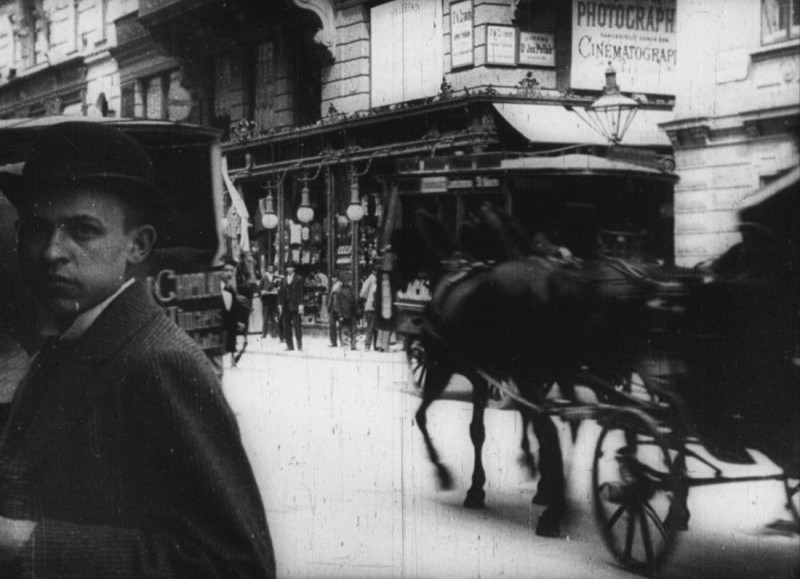Since October 2023, the Film Museum has been an archive and cataloguing partner in a major joint research project with the Ludwig Boltzmann Institute for Digital History (LBIDH).
The history of a city is the history of its spaces and the people who live in them. Digital history opens up both in a new way. Film and other audiovisual media are part of this history in a special way and make it vividly tangible. Film is the outstanding medium of modernity, accompanying the great urbanization processes from the late 19th century until the late 20th century, when it was replaced by analog and digital video. Film shares many characteristics of the urban with the modern city: the movement, the rapid change of perspective, the fluid transition from the private to the public, from the personal to the general, from events of different kinds. At the same time, film is sedimented memory. Digitized, historical films combine with other historical media objects and invite today’s users to a sensual and intellectual (sensory-motor and cognitive) examination of the city’s past and present.
The project "Modern Vienna Time Machine" (Zeitmaschine Modernes Wien, ZMW) focuses on the history of Vienna in the modern era – from the Fin de Siècle to the late 20th century and up to the present day. The aim is to create a publicly accessible online platform on which films, videos, photos, and text documents can be viewed, analyzed, annotated, and linked across different media and used for various forms of engagement with the city's past and present.
In a first step, funded by the City of Vienna MA 07, a film module will be created by September 2025, to be followed by further modules. Together, these modules will form the building blocks for a "Vienna Time Machine" (VTM).
"Vienna Time Machine" is the vision of a historical in-depth exploration of the city by digital means, to which hopefully many other projects will contribute: Advanced digitization of historical documents offers the possibility for their indexing and use with the help of a clever combination of artificial and human intelligence (of automated and manual analysis processes). Dated, georeferenced, indexed in terms of content and linked to other documents, each of these documents provides an insight into a further temporal layer of urban spaces: the present becomes permeable to the past.
The Ludwig Boltzmann Gesellschaft (the Ludwig Boltzmann Institute for Digital History) is a founding member of the Time Machine Organisation (TMO).
The project "Modern Vienna Time Machine" uses and extends methods and technologies developed by the project partners together with other partners in the EU Horizon 2020 Innovation Action "Visual History of the Holocaust. Rethinking Curation in the Digital Age" (2019–2023) and in previous projects. The online platform uses open data services of the City of Vienna (ViennaGIS, Wien Geschichte Wiki). For the film module, the project partners are relying on synergies with the "Reel Adventures" (Abenteuer Alltag) project funded by the Vienna Business Agency.
